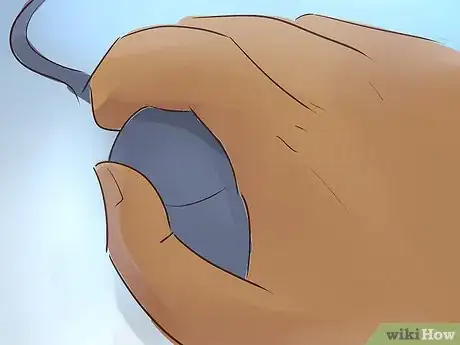wikiHow is a “wiki,” similar to Wikipedia, which means that many of our articles are co-written by multiple authors. To create this article, volunteer authors worked to edit and improve it over time.
This article has been viewed 43,890 times.
Learn more...
Avionics technicians are responsible for performing a variety of tasks that may include maintenance and repair work on aircraft navigation and radio communications as well as weather radar and missile control systems. Work activities encompass numerous tasks such as inspection and installation, adjustments, service and repair. An Avionics Technician License is not presently offered through The FCC (Federal Communications Commission) but they do currently issue several types of commercial operator licenses. The General Radiotelephone Operators License is required by the FCC for those doing repair and maintenance work on FCC licensed radiotelephone aviation transmitters.
Steps
-
1Research the field of avionics to learn more about the work to see if the field is a good match for you. The work that avionics technicians engage in is highly specialized and requires extensive training as well as certification and licensing.
-
2Visit the website of the FCC to review the description of General Radiotelephone Operators License and to get an overview of the examination. Requirements include being a legal resident of the United States, being able to both receive and transmit messages in English and passing the examination.Advertisement
-
3Browse the Internet and explore various programs that provide technical training in preparation for a position as an avionics technician if you have no experience within the field. Obtaining an education in avionics lays the necessary groundwork prior to completing the examination for the General Radiotelephone Operators License.
-
4Consider taking some refresher avionics coursework if you are already working in the field but want to become certified and licensed. Some preparatory study and tutorials will increase your chances of passing the FCC's General Radiotelephone Operators License Examination so that you can advance in your career.
-
5Review the various sections of the written examination for the General Radiotelephone Operators License available on the website of the FCC. Successfully passing this examination requires testing under Element 1 and Element 3.
-
6Review the portion that focuses on Written Element 1 of the General Radiotelephone Operators License on the FCC website. This portion focuses on basic operating practice and radio law and requires correctly answering a minimum of 18 questions out of a total of 24 questions.
-
7Read through the overview provided for Written Element 3 of the General Radiotelephone Operators License on the FCC website. This section covers general radiotelephone and electronic fundamentals necessary to complete repairs, adjustments and maintenance on transmitters for both receivers and radios. Applicants must successfully respond to a minimum of 75 out of 100 questions to pass this portion.
-
8Browse through the FCC's website to discover that sample question and answer sheets are available for perspective examinees to acquire in preparation for the General Radiotelephone Operators License Examination. Links to the information are located under the section for Exam Question Pools.
-
9Realize that study guides to assist in preparation for the General Radiotelephone Operators License Examination can be obtained via links provided on the FCC's website. There is additional information available for interested individuals provided on the FCC's site for examination schedules, locations and fees.
Community Q&A
-
QuestionCan I use an associate degree in industrial electrical electronics technology to be certified by the FCC?
 DanoyachtcaptTop AnswererNo, the FCC only requires that you pass their exams. Your associate degree will, however, help you when applying for a job.
DanoyachtcaptTop AnswererNo, the FCC only requires that you pass their exams. Your associate degree will, however, help you when applying for a job. -
QuestionWhat are the examinations required?
 DanoyachtcaptTop AnswererThe General Radiotelephone Operators license has the same tests for Marine Radio and for Aviation. Some licenses, however, require additional tests, such as Telegraph and/or Radar tests.
DanoyachtcaptTop AnswererThe General Radiotelephone Operators license has the same tests for Marine Radio and for Aviation. Some licenses, however, require additional tests, such as Telegraph and/or Radar tests. -
QuestionHow do I get FCC certifications if I'm already an electronics engineer?
 Community AnswerStudy elements 1 and 3 of the G.R.O.L. Element 1 is rules and regulations. Element 3 is basic electronics: amplifiers, RF circuits, transistor circuits, digital logic circuits, DC and AC theory and basic DC and AC circuit troubleshooting, impedance calculations, etc.
Community AnswerStudy elements 1 and 3 of the G.R.O.L. Element 1 is rules and regulations. Element 3 is basic electronics: amplifiers, RF circuits, transistor circuits, digital logic circuits, DC and AC theory and basic DC and AC circuit troubleshooting, impedance calculations, etc.





























































